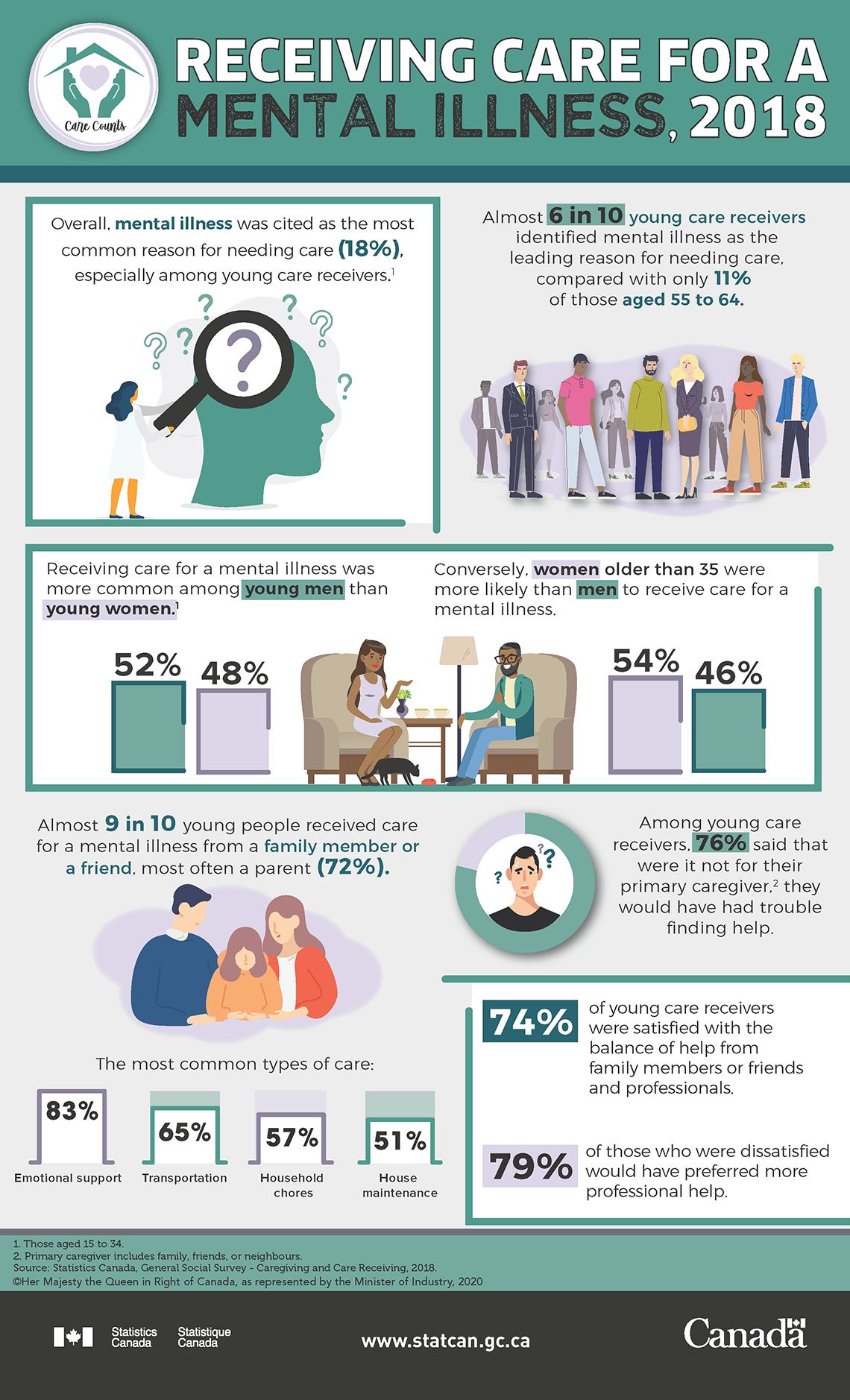Care counts: Receiving care for a mental illness, 2018
Archived Content
Information identified as archived is provided for reference, research or recordkeeping purposes. It is not subject to the Government of Canada Web Standards and has not been altered or updated since it was archived. Please "contact us" to request a format other than those available.

Description: Care counts: Receiving care for a mental illness, 2018
Care counts: Receiving care for a mental illness, 2018
Overall, mental illness was cited as the most common reason for needing care (18%), especially among young care receivers.Note 1
Almost 6 in 10 young care receivers identified mental illness as the leading reason for needing care, compared with only 11% of those aged 55 to 64.
Receiving care for a mental illness was more common among young men than young women.Note 1
- Young men: 52%
- Young women: 48%
Conversely, women older than 35 were more likely than men to receive care for a mental illness.
- Women: 54%
- Men: 46%
Almost 9 in 10 young people received care for a mental illness from a family member or a friend, most often a parent (72%).
The most common types of care:
- Emotional support: 83%
- Transportation: 65%
- Household chores: 57%
- House maintenance: 51%
Among young care receivers, 76% said that were it not for their primary caregiver,Note 2 they would have had trouble finding help.
74% of young care receivers were satisfied with the balance of help from family members or friends and professionals.
79% of those who were dissatisfied would have preferred more professional help.
Source: Statistics Canada, General Social Survey - Caregiving and Care Receiving, 2018.
- Date modified:
